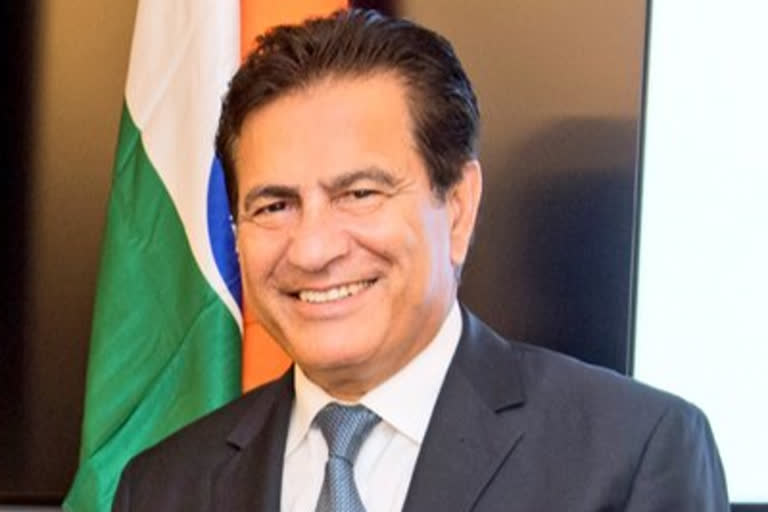Washington: The momentum of the bilateral trade between India and the US is moving in favour of Washington, mainly due to the sudden increase in energy import by New Delhi, the head of a top India-centric American trade and strategic advocacy group has said.
Noting that the India-US trade has gone up from USD 142 billion in 2018 to USD 160 in 2019, US-India Strategic and Partnership Forum's president (USISPF) Mukesh Aghi said that the energy import by New Delhi from the US had shot up dramatically.
Read also: Trump rules out rollback on China tariff
"If you look at three years ago, it was almost zero. Now as of last year's cross USD 6 billion, and we expect this to cost USD 10 billion this fiscal year. So, the momentum is moving in favour of the US," Aghi told PTI.
He added that the bilateral trade numbers were going up without the trade deal and when the big-ticket items such as Boeing planes were not being delivered.
Read also: Trump says China tariffs will go 'even higher' without deal
India's private air carrier Spice Jet has placed an order for 200 planes to Boeing. As such, the trade numbers would go up significantly, once the delivery of the planes kicks in motion.
Aghi said that even after the US withdrew India's GSP privileges, the export in that sector had not slowed down.
"In fact, that is up another five percent," he said. The momentum on the bilateral trade continues even as a trade deal between the two countries is still being negotiated. There are a few issues that need to be sorted out, he said hoping that there will be a more mature response from both sides as time goes by.
"You will have differences. But at the same time, I think we'll find a solution. I don't think there are many open issues. It's just matters of trying to cross the T's and make sure the dots are in the right places so you can move forward," he said.
From the US export environment, Aghi said that the energy sector- ranging from gas, liquefied natural gas (LNG), and even high-quality coal - was taking the lead in the India-US bilateral trade.
"From the US side, scientific products, energy, planes and defence, will keep on fuelling the growth," he said.
"From the Indian side, you will definitely see low-end stuff like jewelry and leather and other garments coming into the US. But we also see services, especially IT services. They will cut you to grow regardless of what H-1B, the demand for that, those services are at the moment fuelling quite a bit. And that's fuelling is coming because of the growth of the economy also," he said.
Aghi asserted that American companies continued to be bullish on India and will continue with their investment in the country.
They are showing a substantial growth on the current base itself and are also gaining the market share, he added.
However, Aghi said the American companies continue to be challenged by the ease of doing business environment in India, in particular at the state level.
While there has been an improvement in the World Bank's ranking in ease of doing business, which is based on parameters in major cities like Mumbai and New Delhi, companies continue to require a number of permits for opening their businesses in states, where the manufacturing unit is going to be set up.
"The other big issue is a transparent and predictable policy. That's important to have. Because the classic example is people are saying, we invested in Andhra Pradesh, a change of government, reversed everything. So today, a lot of companies that invested are struggling with the change in policy.
If you have a contract, those contracts have to be honoured regardless of the change of the government. To me, that's very critical, if you're going to bring that strong sentiment of confidence among US companies to come to invest in India," Aghi said.
"The court system has to play a much more efficient and effective role and there has to be maturity on part of politicians that you attracted a strong investment and you can't overturn because of political reasons," he added.
"Yes, if there's some bribery or some other issues then we absolutely agree with that. But if a company has gone through a proper transparent process, then to reverse that sends a wrong message," Aghi said.
With inputs from PTI



